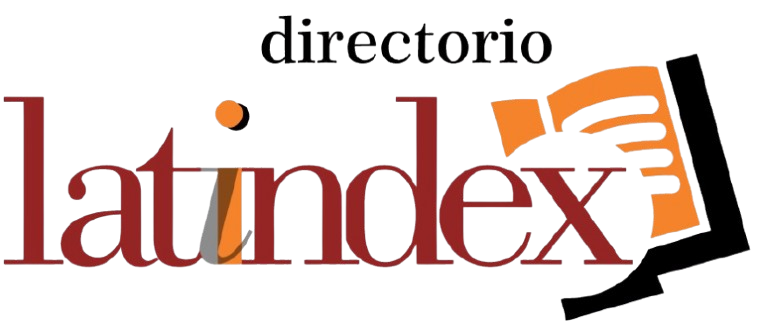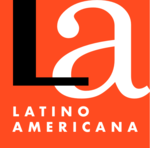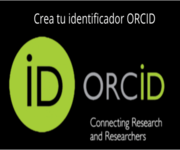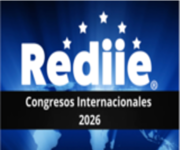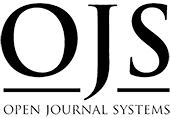Perception of Construction Engineering Students concerning Professional Competencies at a Chilean Private University
Palabras clave:
Professional competencies, Engineering education, Higher education, Skill development, Student evaluationResumen
This study examines the development of professional competencies in 21 construction engineering students enrolled at a private university in Chile. Recognizing the growing demand for highly skilled professionals in the construction industry, the research aims to evaluate the students' self-perceived competencies using a 21-item Likert-scale questionnaire. The study focuses on identifying key strengths and areas for improvement in their preparation for the labor market. Results indicate a favorable perception of their abilities, particularly in technical problem-solving, teamwork, and effective communication—competencies considered critical for professional success in the field. The findings underscore the effectiveness of the current curriculum in fostering these competencies while highlighting the need for ongoing enhancement in practical training and leadership development. The main conclusion is that the students demonstrate a solid foundation of professional skills, positioning them well for career challenges, but there is room to strengthen specific areas to align fully with industry demands.
Descargas
Citas
Adair. D. & Jaeger, M. (2016). Incorporating Critical Thinking into an Engineering Undergraduate Learning Environment. International Journal of Higher Education, 5(2), 24-39. https://files.eric.ed.gov/fulltext/EJ1099804.pdf
Álvarez Salazar, J.A., Martínez-Palmeth, L.H. & Ardil-Marín, J.G. (2024). Social Responsibility of the Engineer grounded in the Critical Theory of Technology. International Journal of Religion, 5(11), 6089–6100. https://ijor.co.uk/ijor/article/view/7427/3922
Bakthavatchaalam, V. (2024). Engineering Education and its Current (Un)suitability in Addressing Sustainable Development Goals [Science-Policy Brief for the Multistakeholder Forum on Science, Technology and Innovation for the SDGs]. http://bit.ly/3VosJRL
Berdanier, C. G. P. (2021). A hard stop to the term “soft skills”. Journal of Engineering Education, 110(4), 1–5. https://doi.org/10.1002/jee.20442
Byrne, Z. S., J. W. Weston & K. Cave (2020). Development of a Scale for Measuring Students’ Attitudes Towards Learning Professional (i.e. Soft) Skills.” Research in Science Education 50, 1417–1143. https://www.engr.colostate.edu/ece/pdfs/red/students_attitudes.pdf
Caten, C. S., Silva, D. S., Aguiar, R. B., Filho, L. C. P. S. & Huerta, J. M. P. (2019). Re-shaping Engineering Learning to Promote Innovative Entrepreneurial Behavior. Brazilian Journal of Operations & Production Management, 16, 141-148. https://doi.org/10.14488/BJOPM.2019.v16.n1.a13
Colman, B., & Willmott, P. (2016). How soft are “soft skills” in the engineering profession? [Paper presented at the 44th Annual SEFI Conference] http://sefibenvwh.cluster023.hosting.ovh.net/wp-content/uploads/2017/09/coleman-how-soft-are-soft-skills-in-the-engineering-profession12_a.pdf
de Campos, D. B., de Resende, L. M. M., & Fagundes, A. B. (2020). The Importance of Soft Skills for the Engineering. Creative Education, 11, 1504-1520. https://doi.org/10.4236/ce.2020.118109
International Engineering Alliance (2014). 25>Years Washington Accord. 1989–2014 Celebrating international engineering education standards and recognition. https://www.internationalengineeringalliance.org/assets/Uploads/Documents/History/25YearsWashingtonAccord-A5booklet-FINAL.pdf
JASP Team (2023). JASP (Version 0.17.3) [Computer software]. https://jasp-stats.org
Kirwan, M.; Bhatti, A.J.; Pacey, V.; Gray, K. & Dean, C.M. (2022). Overcoming Silos: A Sustainable and Innovative Approach to Curriculum Development. Educ. Sci. 2022, 12, 375. https://doi.org/10.3390/educsci12060375
Lamere, M., Brodie, L., Nyamapfene, A., Fogg-Rogers, L., & Bakthavatchaalam, V. (2021). Mapping and Enhancing Sustainability Literacy and Competencies within an Undergraduate Engineering Curriculum [Australasian Association for Engineering Education Conference, Perth, Australia]. https://www.proceedings.com/content/066/066488open.pdf
Lowe, D., Tilley, E., Willeya , K. & Roach, K. (2024). Student reactions to the development of professional engineering competencies. European Journal of Engineering Education, 1-17. https://doi.org/10.1080/03043797.2024.2354240
Lysak, V. (2022). A theoretical analysis of philosophical dimensions in engineering education. Journal of Contemporary Philosophical and Anthropological Studies (JCPAS), 2(3), 37-48. https://doi.org/10.59652/jcpas.v2i3.307
Plaza Gálvez, L. F., González Granada, J.R. & Becerra Moreno, D. (2023). Strengthening Critical Thinking in Engineering Students through Mathematics: The Power of Attitudes. Journal of Hunan University Natural Sciences, 5(7), 189-198. https://doi.org/10.55463/issn.1674-2974.50.7.18
Vera, F. (2022). La perspectiva de docentes sobre la infusión de la sostenibilidad en el currículo de la educación superior. Transformar, 3(2), 17–37. https://revistatransformar.cl/index.php/transformar/article/view/57
Vera, F. (2023a). Infusing Soft Skills in Higher Education: Key to the Development of Advanced Human Capital. Transformar, 4(2), 47–65. https://revistatransformar.cl/index.php/transformar/article/view/92
Vera, F. (2023b). Aprendizaje activo y pensamiento crítico: Impulsando el desarrollo estudiantil en una universidad privada chilena. Transformar, 4(3), 31–44. https://revistatransformar.cl/index.php/transformar/article/view/101
Vera, F. (2024). Desarrollo de competencias genéricas en carreras de Ingeniería: Análisis crítico de propuestas formativas en Chile. Transformar, 5(1), 37–60. https://revistatransformar.cl/index.php/transformar/article/view/116
Vera, F. y García-Martínez, S. (2022). Creencias y prácticas de docentes universitarios respecto a la integración de tecnología digital para el desarrollo de competencias genéricas. Revista Colombiana de Educación, 1(84), 1- 16. https://doi.org/10.17227/rce.num84-11582
Vera, F., & Tejada, E. (2020). Developing soft skills in undergraduate students: A case at a Chilean private university. Transformar, 1(1), 57–67. https://revistatransformar.cl/index.php/transformar/article/view/12
Veza, B., YusrizalY., Idris, M., Putra, N.R. & Balogu, S.A. (2023). Current Status of Global Engineering Education: Mini Review. RADIAL : Jurnal Ilmiah Sains & Rekayasa, 1(2), 069-077. https://doi.org/10.62024/radial.v1i2.8
Waks, S., Trotskovsky, E., Sabag, N., & Hazzan, O. (2011). Engineering thinking: The experts' perspective. International Journal of Engineering Education, 27(4 PART II), 838-851. https://www.researchgate.net/publication/260980041_Engineering_Thinking_The_Expert's_Perspective#fullTextFileContent



